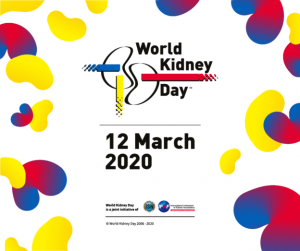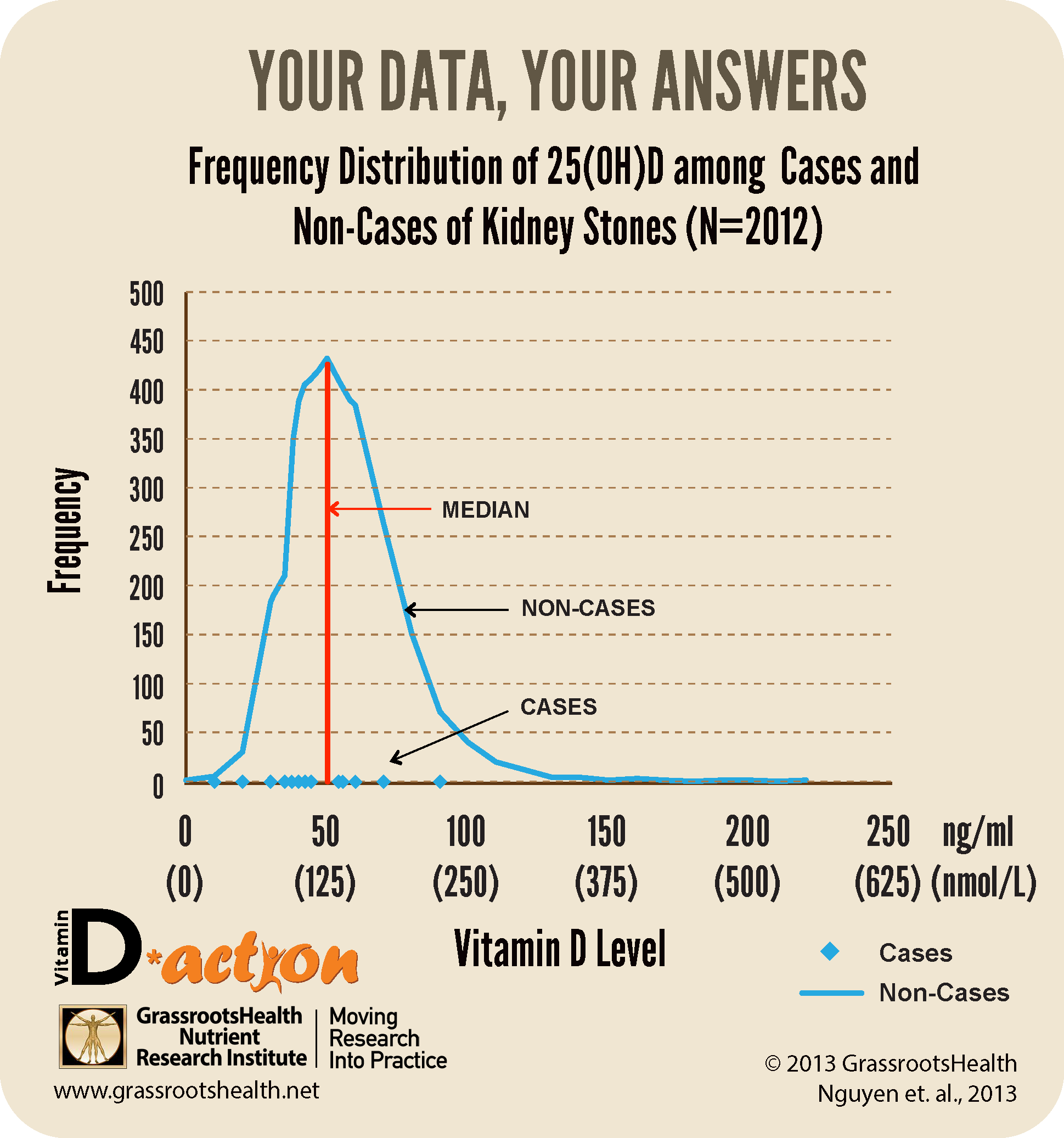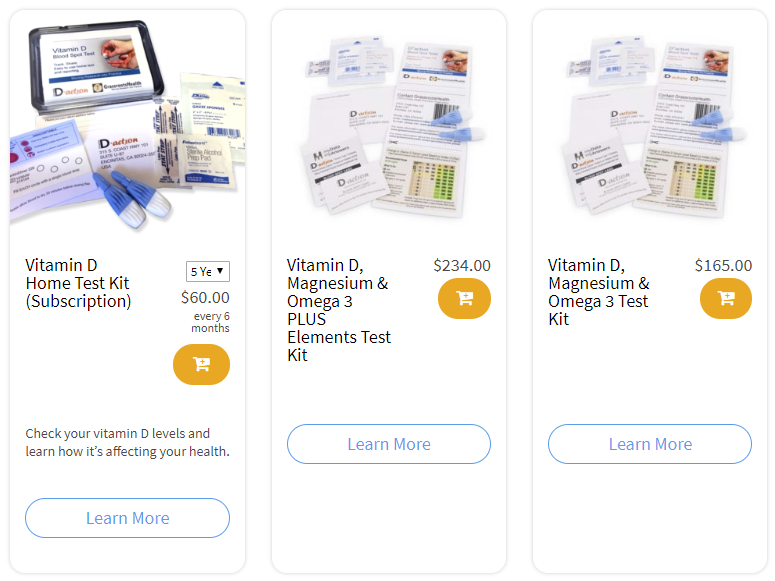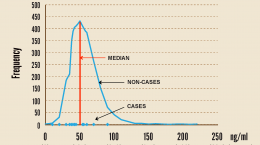Published on March 13, 2020
 March is National Kidney Month and today, March 12, is World Kidney Day. In recognition, today’s blog focuses on a GrassrootsHealth analysis investigating whether there is an association between vitamin D levels and kidney stone risk.
March is National Kidney Month and today, March 12, is World Kidney Day. In recognition, today’s blog focuses on a GrassrootsHealth analysis investigating whether there is an association between vitamin D levels and kidney stone risk.
In October 2013, results from an analysis assessing the relationship between vitamin D levels and the risk of kidney stones among 2,012 GrassrootsHealth participants were published.
We found that there was no association between vitamin D levels in the range of 20 to 100 ng/ml and kidney stone risk. However, body mass index (BMI) was found to be associated with kidney stones. Specifically, those with a BMI of 30 or higher had 3.5 times the risk compared to those with a BMI less than 30 (P=0.03). While not part of this analysis, one of the most common risk factors for kidney stones is dehydration – simply not drinking enough fluids (ideally water).
So, don’t let the fear of kidney stones keep you from taking your vitamin D.
Tomorrow’s news will cover a paper published by McCullough et al. that followed hospitalized patients over the course of two years or more who were taking daily vitamin D doses of 5000 IU up to 50,000 IU, with no observed cases of kidney stones or other toxic effects observed due to supplementation. So, stay tuned!
Become a part of important research findings, such as this!
By testing your nutrient levels and participating in sharing your health data, you become part of the D*action nutrient field trial. With your data and results, we are able to analyze, find, and publish nutrient research that can be applied to your life and others’. You can also track your own intakes, symptoms and results to see what works best for YOU.
Make sure you know your vitamin D level, and take steps to keep it within a target of 40-60 ng/ml or 100-150 nmol/L! Through GrassrootsHealth Nutrient Research Institute, you can also test your essential elements magnesium, copper, zinc and selenium, toxins such as lead, mercury and cadmium, as well as your omega-3 levels, inflammation levels and thyroid stimulating hormone (TSH) level. Find out your levels today! Log on to the test selection page (click the link below) to get your tests and see for yourself if your levels can be improved.
Make sure you track your results before and after, about every 6 months!
Click Here to Access the Test Page
How can I track my nutrient intake and levels over time?
To help you track your supplement use and nutrient levels, GrassrootsHealth has created the Personal Health Nutrient Decision System called
For each specific supplement, you can track what days you take it, how much, and many other details. This will help you know your true supplemental intake and what patterns of use work for you to reach and maintain optimum nutrient levels. Check it out today!









